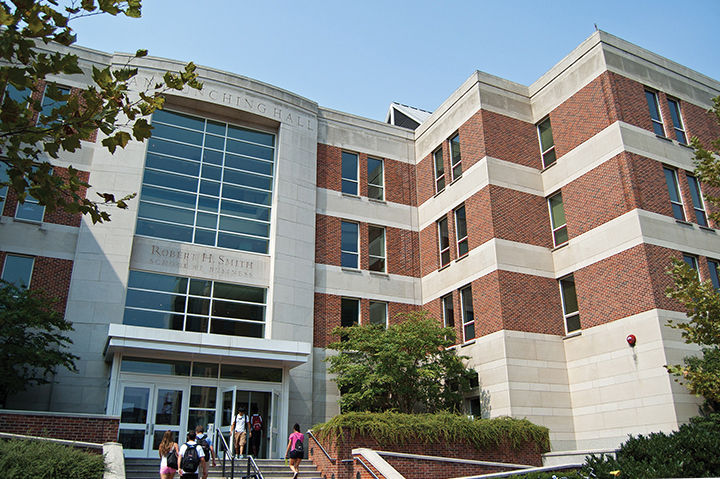A group of parents are considering filing a lawsuit against a Maryland state-run college savings trust after the fund refused to pay thousands in differential tuition being charged to business, engineering and computer science students at the University of Maryland.
This potential lawsuit rests largely on whether a 2016 legislative session bill from state Sen. Edward Kasemeyer to change the wording of the trust’s contract to include differential tuition passes. The parents are already reaching out to legislators in Annapolis to lobby for the change.
The Maryland Prepaid College Trust, with the slogan “lock in tomorrow’s tuition at today’s prices,” promises to help parents avoid rising tuition costs. Parents pay into the fund when their children are young, and when they reach college age, the fund promises to pay full in-state tuition at any state university, regardless of rising costs, according to the trust’s website.
In May, when the University System of Maryland Board of Regents approved a gradual tuition increase of up to $2,800 per year for juniors and seniors in business, engineering and computer science programs, the board that oversees the trust elected not to cover the tuition increase. This forced parents — who had been promised years ago that their children’s full tuitions would be covered — to pay the unexpected costs out of pocket.
READ MORE: UMD looks to raise tuition for comp sci, business, engineering fields
“For students enrolled in the plan, it’s something that caught us off guard, and it’s an additional financial strain that wasn’t initially in our plans for college,” said Sarah Niezelski, a senior economics and mechanical engineering major. Niezelski, the Student Government Association financial affairs vice president, said her parents enrolled her in the Prepaid College Trust when she was in second grade.
Niezelski’s mother Susan, who is a professional financial planner, has been trying to persuade the Prepaid College Trust’s board to pay the cost. She spoke at the board’s public meeting Thursday morning, arguing the trust has the contractual obligation — and the financial means — to pay the differential tuition.
Board members argued differential tuition does not fall within the scope of what the trust covers because it is only applied to a portion of students. Business, engineering and computer science majors made up about 20 percent of university juniors and seniors at the time the system proposed the tuition increase.
“Since the beginning of the program, under Maryland law the tuition that is covered is the tuition paid by all students for enrollment at the campus,” said State Treasurer Nancy Kopp, chairwoman of the Prepaid College Trust’s board. “The board of trustees does not have the option of changing the basic provision that we pay for tuition charged to all students.”
But parents argue the trust’s law is not so explicit. Paul Bade, father of a freshman computer science major and a senior chemical engineering major, spoke at the board’s Thursday meeting and focused on one specific clause in the contract. The contract, he said — which says it will cover in-state tuition in full — defines tuition as “the actual tuition and mandatory fees assessed to all students.”
Bade argued it is not clear whether “assessed to all students” refers just to the mandatory fees or to tuition as well.
When the contract was written more than 10 years ago, differential tuition was not something on anyone’s radar, so the board could not have foreseen a tuition increase that applies to only a fifth of university students.
Bade said the ambiguous wording and unclear intent gives the board flexibility to chose to cover the tuition, and like Niezelski, he noted it is within the trust’s financial means. If a lawsuit does come to fruition, Bade said attorneys think he has a good chance of winning.
The fund’s 2015 annual report said it had 136 percent of the money it anticipated because of lower-than-expected tuition increases as well as high returns on the investments it had made.
Because the trust covers in-state tuition at a number of different state schools, the amount it actually pays to students varies depending on where they enroll.
READ MORE: STUDY: Tuition increases could negatively impact UMD’s diversity
Students who enroll at St. Mary’s College of Maryland, the most expensive state school, have an in-state tuition and fees of $13,895. This is about $1,000 more than this university’s full in-state cost even after the total differential tuition is added.
Bade told the board that because the fund already covers tuition higher than what he is asking it to pay and is overfunded, it should have no problem covering differential tuition.
In response, Kopp said the board wants to maintain a surplus in case there is an unexpected downturn in the market or a tuition hike by Gov. Larry Hogan’s administration.
“We do want an actuarial surplus of some size,” Kopp said. “The problem is the stock market and this economy — and quite candidly, an administration that is not as wedded as the O’Malley administration was to keeping tuition flat.”
READ MORE: University announces tuition increases, staff furloughs to ease $15.6M budget cut
Parents said they are not very optimistic that the board will change its mind and pay the differential tuition, which prompted them to reach out to lawmakers in Annapolis to try to change the contract’s wording and force the board to pay.
Kasemeyer, who wrote the bill creating the Prepaid College Trust in 1996, said the board should pay the differential tuition.
“It just strikes me as an element of fairness that they should pay for it,” Kasemeyer said. “Any time you raise the price of anything, some people won’t be able to afford it at some level, so there’s no question it will have a negative impact on somebody.”



